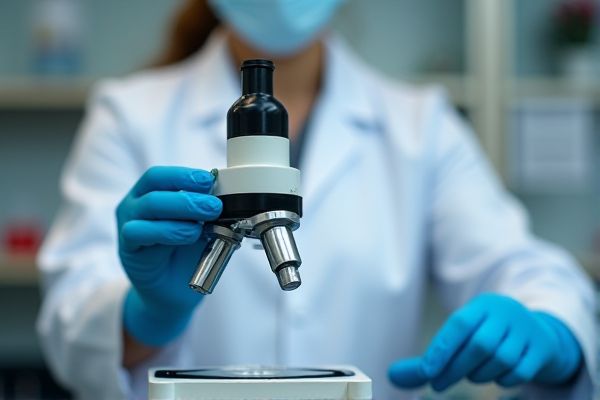
The field of microbiology in the Philippines offers diverse job opportunities, particularly in research, healthcare, and industrial sectors. Many positions are available in hospitals, where microbiologists conduct diagnostic tests to identify infectious agents and support disease control. Research institutions and universities often seek microbiologists to contribute to studies on microbial genetics, antibiotic resistance, and vaccine development. The biotechnology and pharmaceutical industries also value microbiologists for their expertise in product development and quality assurance processes.
Job Description
Microbiology jobs in the Philippines involve a range of responsibilities, including conducting research, analyzing microorganisms, and developing protocols for laboratory testing. Positions may exist in hospitals, pharmaceutical companies, environmental agencies, and academic institutions, providing opportunities to contribute to public health and safety. Strong knowledge of laboratory techniques, regulatory guidelines, and safety practices is essential for success in this field. As demand for microbiologists grows in response to emerging health challenges, pursuing a career in this discipline can be both rewarding and impactful.
Requirement
Microbiology jobs in the Philippines typically require a bachelor's degree in microbiology, biology, or a related field. Candidates often benefit from having laboratory experience, as practical skills in microbial techniques are essential for many positions. Employers may prefer applicants who are familiar with quality control procedures and laboratory safety protocols. Strong analytical skills and attention to detail are crucial for success in this growing sector of the job market in the Philippines.
Salary and Perks Expected
Microbiology jobs in the Philippines typically offer salaries ranging from PHP 20,000 to PHP 40,000 per month, depending on experience and specialization. Entry-level positions may expect lower compensation, while advanced roles in research or industry can command higher pay. Many employers also provide benefits such as health insurance, professional development opportunities, and performance bonuses, further enhancing your overall compensation package. The demand for microbiologists is growing in fields like pharmaceuticals, environmental science, and food safety, ensuring various career paths and opportunities for advancement.
Similar Job Names
- Microbiologist
- Clinical Microbiologist
- Environmental Microbiologist
- Pharmaceutical Microbiologist
- Food Microbiologist
- Research Scientist - Microbiology
- Quality Control Microbiologist
- Industrial Microbiologist
- Laboratory Technician - Microbiology
- Bioprocessing Scientist
- Microbial Ecologist
- Clinical Lab Scientist
- Microbial Geneticist
- Infection Control Specialist
- Academic Researcher in Microbiology
Job Expectation Concept
Microbiology jobs in the Philippines encompass a diverse range of opportunities in research, clinical laboratories, quality control, and environmental monitoring. You will find positions in hospitals, pharmaceutical companies, and food industries that require expertise in microbial analysis and pathogen detection. The demand for skilled microbiologists is growing due to the increasing need for health and safety protocols, particularly in response to emerging diseases. Emphasizing practical skills and staying updated with advancements in biotechnology can enhance your career prospects in this field.
Career Advantage and Weakness
Microbiology jobs in the Philippines offer a significant advantage due to the increasing demand for skilled professionals in healthcare, food safety, and environmental monitoring. The growing biotechnology sector amplifies employment opportunities, allowing you to contribute to advancements in disease control and public health. However, a potential weakness lies in the competitive job market, where many graduates vie for limited positions, emphasizing the need for specialized skills or additional education. Staying updated on industry trends and honing relevant expertise can enhance your employability in this dynamic field.
Important Thing Must Know
Microbiology jobs in the Philippines play a crucial role in public health, environmental protection, and food safety. Educational qualifications often include a degree in microbiology, biology, or related fields, with advanced degrees enhancing job prospects. Many positions are available in hospitals, research institutions, and pharmaceutical companies, focusing on disease control and laboratory analysis. Networking and internships can significantly improve your chances of landing a microbiology role. Staying updated on the latest research and technological advancements in the field is essential for career growth.
Alternative Career Options
Exploring alternative career options in microbiology within the Philippines can lead you to various exciting fields beyond traditional laboratory roles. Opportunities exist in environmental microbiology, where you can work on bioremediation projects to improve ecosystem health. The pharmaceutical industry also demands microbiologists for drug development and quality control processes, contributing to public health initiatives. Additionally, roles in academia allow for teaching and research, fostering the next generation of scientists while furthering your own professional growth.
Companies List
- San Miguel Corporation
- Nestle Philippines
- GlaxoSmithKline Philippines
- Pfizer Philippines
- Unilab, Inc.
- AB Biotek Philippines
- Food and Drug Administration (FDA) Philippines
- Bioline Analytical Laboratories
- Medical City
- Philippine General Hospital
List of Ideal City
Manila stands out as the primary hub for microbiology jobs in the Philippines, with numerous research institutions and universities offering opportunities in the field. Cebu is another vibrant city where the growing biotechnology sector creates demand for microbiologists in various industries, including pharmaceuticals and food safety. Davao, known for its agricultural innovations, provides roles related to microbial research in agriculture and environmental science. These cities not only offer diverse job prospects but also foster professional growth through academic and industry collaborations.
 jobs-philippines.com
jobs-philippines.com